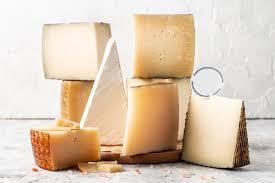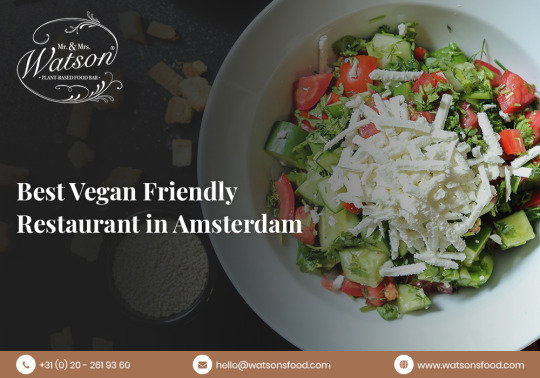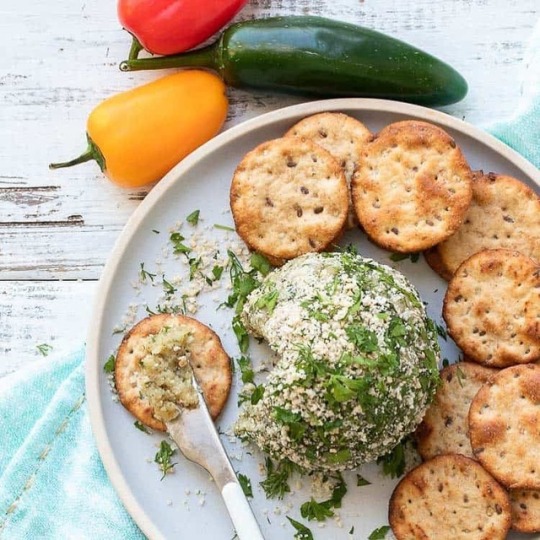#PlantBasedCheese
Explore tagged Tumblr posts
Text
Plant-Based Cheese Market Set to Double by 2032
Meticulous Research®—a leading global market research company, published a research report titled ‘Plant-based Cheese Market—Global Opportunity Analysis and Industry Forecast (2025-2032)’. According to this latest publication, the plant-based cheese market is expected to reach $8.62 billion by 2032, at a CAGR of 9.8% from 2025 to 2032.
Plant-based cheese is gaining popularity as more people seek healthier, animal-free, and ecologically friendly eating options. Whether you are vegan, lactose intolerant, or simply curious, you may have noticed that plant-based cheese is becoming more common in supermarkets and restaurants. Here's a quick look at why plant-based cheese is popular and what to expect in the future. Why is plant-based cheese becoming popular? Plant-based cheese is becoming increasingly popular for a variety of reasons: Vegan and vegetarian diets are becoming increasingly popular for reasons of health, animal welfare, and environmental sustainability. Many people have difficulty digesting dairy, therefore they seek non-dairy cheese alternatives. Plant-based cheese is healthier for the environment. It requires less natural resources and emits fewer greenhouse gases.
Companies are investing in higher-quality plant-based products and providing more options. Market challenges Despite its expansion, the market confronts some challenges: Many people continue to favor the flavor and texture of regular dairy cheese. The cost of plant-based ingredients such as nuts fluctuates, affecting product costs. More consumers are asking for soy-free and gluten-free choices, which might be more difficult to prepare. Asia Pacific is leading the market. The Asia-Pacific region is predicted to dominate the plant-based cheese market by 2025. The market in this region is expected to be worth 2.02 billion USD. This is because of: Increasing health awareness. Rapid population growth and urban living A robust food and beverage industry.
Many people already practice a vegetarian or vegan diet. Popular Types of Plant-Based Cheese The survey reveals which types of cheese people favor. Mozzarella is the most popular. It is commonly used in pizza and spaghetti and melts nicely. Almond is the best plant source. Cheese made with almond milk is healthier for the environment. Flavored cheeses are getting more popular as people want more variety. The most common form of cheese is block. It's familiar, easy to keep, and can be cut or shredded. Most people buy plant-based cheese in supermarkets. Vegan items are becoming more visible in supermarkets. Top Companies in the Market Some of the main companies producing plant-based cheese are:
The plant-based cheese market is characterized by a moderately competitive scenario due to the presence of many large- and small-sized global, regional, and local players. The key players operating in the plant-based cheese market are Daiya Foods Inc. (Canada), Danone S.A. (France), The Gardener Cheese Company Inc. (U.S.), Kite Hill (U.S.), Bute Island Foods Ltd. (U.K.), Puris Foods (U.S.), Miyoko's Creamery (U.S.), Field Roast (U.S.), GreenSpace Brands (Canada), WayFare Foods (U.S.), Kraft Heinz Company (U.S.), and Parmela Creamery (U.S.).
The global plant-based cheese market is segmented based on type, source, formulation, form, and distribution channel. The report also evaluates industry competitors and analyzes the plant-based cheese market at the regional and country levels.
Current Market Trends Here are some key trends: Restaurants and hotels are including plant-based cheese into their menus. More individuals are selecting foods with clean ingredients and health advantages. Companies are introducing more convenient options, such as slices, spreads, and shredded cheese. Final Thoughts Plant-based cheese is no longer a fad. It is becoming a regular component of many people's diets. It is healthier for humans, animals, and the environment. Whether you want to avoid dairy or try something new, plant-based cheese is a tasty and responsible option. The future of cheese appears plant-based and full of possibilities.
Download Sample Report Here @ https://www.meticulousresearch.com/download-sample-report/cp_id=6017
Key Questions Answered in the Report-
· What is the value of revenue generated by the sale of plant-based cheese market?
· At what rate is the global demand for plant-based cheese projected to grow for the next five to seven years?
· What is the historical market size and growth rate for the plant-based cheese market?
· What are the major factors impacting the growth of this market at global and regional levels?
· What are the major opportunities for existing players and new entrants in the market?
· Which type, source, formulation, form, and distribution channel segments create major traction for the manufacturers in this market?
· What are the key geographical trends in this market? Which regions/countries are expected to offer significant growth opportunities for the manufacturers operating in the plant-based cheese market?
· Who are the major players in the plant-based cheese market? What are their specific product offerings in this market?
· What recent developments have taken place in the plant-based cheese market? What impact have these strategic developments created on the market?
Contact Us: Meticulous Research® Email- [email protected] Contact Sales- +1-646-781-8004 Connect with us on LinkedIn- https://www.linkedin.com/company/meticulous-research
#PlantBasedCheese#VeganCheese#DairyFree#SustainableEating#LactoseFree#FoodInnovation#VeganTrends#HealthyEating#MarketResearch#FoodIndustry#PlantBased#VeganLifestyle#FutureOfFood#FoodTech#GlobalMarkets#ConsumerTrends#Mozzarella#AlmondCheese#AsiaPacificMarket#FlavoredCheese
1 note
·
View note
Text
🌱🧀✨Making Instant Vegan Parmesan Cheese
Here is a little cooking tip for you. To make instant vegan parmesan, combine nutritional yeast, cashews, salt, and garlic powder using a food processor on the mix/pulse setting. You will need 90 grams of raw cashews, 9 grams of nutritional yeast, 2 grams of sea salt, and .7 grams of garlic powder. Nutritional yeast is rich in B vitamins, fiber, and protein and gives a cheesy flavor to sauces, popcorn, soups, and pasta. Use this tasty parmesan to top off your vegan garlic cheesy bread, pizzas, and pasta. Store it in your refrigerator and it will keep for a few weeks.
Free international vegan recipes? Simply access them at SupremeMasterTV.com/veganrecipes
✨✨✨✨✨✨✨✨✨✨✨✨✨✨✨
💗 Please join Supreme Master Ching Hai to sincerely thank God Almighty for World Vegan, World Peace and souls’ Liberation 💗 Every day at 9:00 PM Hong Kong time 🙏
SupremeMasterTV.com
#SupremeMasterTV#VeganCooking#PlantBasedCheese#HomemadeParmesan#VeganRecipes#NutritionalYeastMagic#CashewCheese#DIYVegan#CheesyDelights#VeganKitchenTips#HealthyEating#PlantPowered#EasyRecipes#DIYCheese
2 notes
·
View notes
Text
Plant-based Cheese Market Growth Fueled by Global Dietary Transitions
The plant-based cheese market is experiencing unprecedented growth, driven by global dietary transitions that prioritize health, sustainability, and animal welfare. With vegetarianism and veganism on the rise across continents, this industry is no longer a niche—it’s a global shift in food consumption patterns. Notably, Gen Z and Millennials are actively adopting plant-based diets not just for personal health, but for environmental consciousness and ethical reasons.

Health Trends Accelerating Market Expansion
A key driver of plant-based cheese market growth is the escalating consumer focus on health. Many consumers are now reducing their intake of cholesterol, saturated fat, and lactose, turning instead to plant-based alternatives perceived as cleaner and more digestible. Brands are responding with nutrient-enriched plant-based cheeses made from cashews, almonds, oats, coconut, and soy that provide a wholesome substitute without compromising taste or nutrition.
Moreover, increasing cases of lactose intolerance and dairy allergies globally have compelled consumers to opt for dairy-free products. This medical consideration, paired with growing awareness of animal rights and the impact of animal agriculture on the environment, supports long-term interest in plant-based cheese.
Sustainability and Ethical Consumption as Catalysts
Environmental concerns are becoming intrinsic to consumer purchasing decisions. Livestock farming contributes significantly to greenhouse gas emissions and deforestation, prompting eco-conscious individuals to avoid animal-based products. Plant-based cheese manufacturers are actively leveraging this shift, branding their offerings with carbon footprint disclosures and sustainable packaging.
Sustainability not only boosts consumer appeal but also strengthens the brand image. In fact, companies that integrate eco-certifications, minimal packaging, and clean labels are witnessing increased shelf appeal and brand loyalty. Ethical transparency in sourcing and production practices is turning into a vital differentiator in the plant-based cheese segment.
Market Penetration and Retail Channel Expansion
The growing popularity of plant-based cheese has triggered robust expansion across retail and e-commerce platforms. Supermarkets are dedicating more shelf space to plant-based options, while digital grocery platforms now feature dedicated vegan categories. This increase in accessibility is helping brands reach both urban and semi-urban markets, creating fresh opportunities for global and regional players.
Particularly, North America and Western Europe have become hotspots for plant-based dairy innovation, with companies like Violife, Daiya, and Miyoko’s Creamery pushing the boundaries in taste, texture, and nutritional profile. Asia-Pacific, meanwhile, is emerging as a growth frontier, propelled by changing dietary norms and rapid urbanization.
Technological Innovation Enriching Product Development
Research and development have become critical for brands aiming to maintain competitiveness in this evolving landscape. Innovations in fermentation, microbial engineering, and texture simulation are revolutionizing how plant-based cheeses are formulated and perceived. These developments help mimic the meltability, umami, and mouthfeel of traditional cheese—key sensory elements that influence consumer acceptance.
Investments in proprietary techniques and next-gen ingredients are helping brands craft superior products that not only satisfy taste expectations but also meet nutritional benchmarks. For example, advancements in enzymatic processing and precision fermentation are being used to produce vegan casein analogues, further narrowing the gap between dairy and non-dairy cheese.
Regulatory Environment and Labeling Guidelines
While demand is surging, regulatory frameworks around the labeling and marketing of plant-based cheese remain complex and varied across countries. In some markets, labeling a non-dairy product as "cheese" is under scrutiny. This regulatory uncertainty can affect how quickly brands penetrate new markets and how clearly they can communicate benefits to consumers.
To mitigate risks, companies are proactively working with food safety regulators and industry groups to ensure transparent labeling that satisfies legal requirements while educating consumers effectively. Clear and informative packaging that highlights allergen-free attributes, protein content, and sustainability claims is increasingly favored.
Consumer-Centric Marketing and Brand Engagement
Brand storytelling has become a key success factor in the plant-based cheese market. Companies that align their messaging with consumer values—such as animal welfare, sustainability, and holistic well-being—are building stronger emotional connections. Social media campaigns, influencer collaborations, and community-driven promotions are especially effective in targeting younger consumers who view food choices as reflections of personal values.
Sampling initiatives, pop-up experiences, and product placement in plant-forward restaurants further help in educating consumers and encouraging trial, especially for premium or artisanal offerings.
Market Outlook: Continued Acceleration Expected
The trajectory for the plant-based cheese market suggests continuous upward momentum. As more consumers gravitate toward clean-label, dairy-free, and ethically produced food, the market will diversify in both product range and geographical reach. The entry of large food conglomerates alongside agile startups will likely foster healthy competition and innovation.
By 2030, plant-based cheese is expected to evolve from an alternative to an essential category in mainstream retail and food service. Emerging technologies, growing investment, and dynamic consumer behavior will collectively reinforce the sector’s potential.
#plantbasedcheese#dairyfree#vegancheese#foodinnovation#sustainableeating#plantbasedmarket#healthylifestyle#veganfood#futureoffood#cheesemarket
0 notes
Text
How to Make Vegan Cheese at Home: Multi Perspective Guide?
Learn how to make delicious vegan cheese at home through multiple perspectives—culinary science, nutrition, practical techniques, and ethical considerations.
#veganhealthy#veganingredients#veganrecipes#plantbased#plantbasednutrition#veganfoods#veganprotein#veganbreakfastrecipes#vegancheese#homemadevegancheese#plantbasedcheese#cashewcheese#nutcheese#dairyfree#crueltyfreecooking#sustainableeating#wholefoodplantbased
0 notes
Text
Cheese Alternatives Market Drivers Shaping Future Growth and Consumer Demand
The global cheese alternatives market is experiencing dynamic growth, driven by multiple powerful factors shaping consumer preferences and industry strategies. As awareness around health, sustainability, and ethical consumption rises, cheese alternatives have emerged as a vital segment within the broader plant-based foods market. This article explores the primary drivers propelling the cheese alternatives market forward and how they influence market growth and innovation.

1. Rising Health Consciousness
One of the most significant drivers for the cheese alternatives market is increasing health awareness among consumers. Many individuals today are more concerned about the negative health impacts associated with traditional dairy cheese, such as lactose intolerance, high cholesterol, and saturated fat content. Cheese alternatives, typically made from plant-based sources like nuts, soy, and coconut, provide a lower-fat, cholesterol-free, and often fortified option that appeals to health-conscious consumers.
Additionally, the rise of digestive health issues and allergies related to dairy has led consumers to seek hypoallergenic and easily digestible cheese substitutes. This health trend is not limited to vegetarians or vegans but extends to a broad demographic seeking better nutrition and wellness.
2. Expanding Vegan and Plant-Based Lifestyles
A substantial driver of growth in the cheese alternatives market is the expansion of vegan and plant-based lifestyles. The global vegan population continues to increase, driven by ethical concerns for animal welfare and environmental sustainability. As a result, demand for dairy-free products, including cheese substitutes, has surged.
Plant-based cheese provides an essential alternative for vegans who want to enjoy cheese-like textures and flavors without compromising their values. Market players are innovating with ingredients like cashews, almonds, oats, and even innovative microbial fermentation to closely mimic the taste and meltability of traditional cheese, attracting even non-vegans curious about plant-based diets.
3. Environmental Sustainability Concerns
Environmental impact is another powerful market driver. Dairy farming is associated with significant greenhouse gas emissions, water usage, and land degradation. Conscious consumers increasingly seek products with a lower environmental footprint, driving demand for sustainable food choices.
Cheese alternatives often require fewer natural resources to produce, appealing to environmentally aware consumers. Brands emphasize the sustainability benefits of their plant-based cheeses in marketing campaigns, which further encourages adoption. This eco-friendly narrative resonates well with millennials and Gen Z consumers, who prioritize sustainability in their purchase decisions.
4. Technological Innovation and Product Development
Advancements in food technology and product formulation have been pivotal in driving the cheese alternatives market. Early plant-based cheeses were often criticized for poor taste and texture, limiting consumer acceptance. However, recent breakthroughs in fermentation technology, enzyme applications, and ingredient sourcing have enabled manufacturers to produce cheese alternatives that closely replicate traditional cheese characteristics.
Innovation is helping to expand the product range from basic slices to shredded, block, cream cheese, and specialty artisan-style alternatives. Improved sensory experiences are attracting a wider audience, including flexitarians who occasionally reduce dairy intake for health or environmental reasons.
5. Increasing Availability and Distribution Channels
The growing presence of cheese alternatives in mainstream retail and foodservice channels is a crucial market driver. Initially, plant-based cheeses were niche products primarily available in health food stores. Now, they are widely found in supermarkets, convenience stores, and restaurants globally.
E-commerce platforms also offer easy access to a diverse range of cheese alternatives, expanding consumer reach. The increased visibility and availability encourage trial and repeat purchases, creating a positive feedback loop for market growth.
6. Rising Consumer Awareness and Marketing Efforts
Marketing and education efforts have played a fundamental role in driving demand. Consumers are better informed about lactose intolerance, dairy allergies, and the environmental impact of animal agriculture through social media, documentaries, and influencer campaigns.
Brands leverage these platforms to promote cheese alternatives as tasty, healthy, and sustainable choices. This improved consumer knowledge lowers barriers to adoption and boosts confidence in plant-based cheese products.
7. Regulatory Support and Industry Investments
Governments and regulatory bodies increasingly support plant-based food innovation through favorable policies, grants, and research funding. This institutional backing helps accelerate development and commercialization of cheese alternatives.
Simultaneously, major food corporations are investing heavily in plant-based brands and startups, driving market consolidation and rapid product innovation. Such investments signal strong market confidence and contribute to scaling production and lowering costs.
Conclusion
The cheese alternatives market is growing robustly, propelled by a combination of health consciousness, ethical considerations, environmental sustainability, technological advancements, and expanded accessibility. These drivers collectively shape consumer behavior and industry dynamics, ensuring continued innovation and market expansion.
As more consumers seek nutritious, sustainable, and ethical options, the cheese alternatives market is poised to capture a growing share of the global cheese consumption landscape. Companies that strategically align with these drivers through product innovation, consumer engagement, and sustainability commitments will lead the way in this evolving market.
0 notes
Text

You can treat yourself without feeling bad with this healthy and creamy vegan cheese sauce. This sauce is full of healthy foods like cashews, potatoes, and carrots, so it tastes great and doesn't have any extra fat. It tastes great drizzled over your favorite foods or used as a dip for snacks.
Ingredients: 1 cup raw cashews. 1 cup peeled and diced potato. 1/2 cup peeled and diced carrots. 1/4 cup nutritional yeast. 1/4 cup lemon juice. 1/2 teaspoon garlic powder. 1/2 teaspoon onion powder. 1 teaspoon salt. 1/2 teaspoon paprika. 2 cups water.
Instructions: Chop up some potatoes and carrots and put them in a medium-sized saucepan. Put water on top and boil it. About 10 to 15 minutes, or until the vegetables are soft. The cashews, potato, and carrots should be drained and put into a blender. You can blend water, lemon juice, garlic powder, onion powder, nutritional yeast, and salt. If you need to, add more water to get the consistency you want. Blend until smooth and creamy. Right away, pour it over pasta, steamed vegetables, or use it as a dip.
Prep Time: 10 minutes
Cook Time: 15 minutes
ProtechZone
0 notes
Photo

Here are 11 recipes for delicious, homemade vegan cheeses. Expand your culinary horizons with these mouthwatering recipes for homemade vegan cheeses. Get ready to indulge in a dairy-free delight.
0 notes
Text
Healthy Cheese Wheel Recipe Vegan cheese made mostly with red bell peppers and cashews without any oils or MSG. It is free from dairy, oil, nutritional yeast, vinegar, and natural flavors, but absolutely delicious! Can be used for quesadillas, sandwiches, crackers and more!

"When my mom started following the Medical Medium protocol, I promised her I would find her clean alternatives for all her favorite foods. For months, all she wanted was a grilled cheese or quesadilla, but I could not find a clean vegan cheese without additives for the life of me. A promise is a promise, so I took matters into my own hands and decided to make my own."
Jamie focuses on creating whole food, plant based recipes that follow the Medical Medium protocol that focuses on healthy ingredients and omitting ingredients that are artificial, grow pathogens, or inhibit healing.
Every Vegan Recipe has nearly 100 categories to accommodate any diet within a vegan lifestyle, including several dedicated to Medical Medium protocols that a lot of people internationally follow. With a delicious recipe like this, it isn't hard to see why so many request more recipes like this!
#medical medium#medicalmedium#vegan cheese#plantbasedcheese#vegan#veganrecipes#plantbased#veganism#veganrecipe#plantbasedrecipes#plantbasedrecipe#vegetarian#plantbased recipes#go vegan#vegan recipe#vegan recipes#plantbased recipe#plant based recipes#plant based#wholefoodplantbased#wholefoods#whole30#vegan health#health#healthy#cheese
14 notes
·
View notes
Photo

As a pasta lover, I really loved grating parmesan cheese on my pasta back when I still consumed dairy products. Though it's hard to find a great substitution after I started to be a vegan. Finally I found this vegan parmesan cheese aka Parveggio by @greenvie_dairyfree . Really love using it when I make pasta, it smells and tastes just like the real parmesan cheese!! #vegan #plantbased #vegancheese #plantbasedcheese #veganparmesan #veganparmesancheese #greenvie https://www.instagram.com/p/CN5KcywDMDn/?igshid=1v2jvw5tnepgn
2 notes
·
View notes
Photo

Besan with Wegmans plant based cheese and broccoli spinach mix. #vegan #besan #plantbasedcheese @wegmans @veganwegmans https://www.instagram.com/p/CMnmz8dBLJj/?igshid=1kguu0ynlocv9
1 note
·
View note
Photo

Mr. & Mrs. Watson is known for its vegan cheeses. Our cheese won, among other things, the "Best Vegan Cheese" award from PETA. The cheeses are made with organic ingredients such as cashews, almonds and soy. Since 2017, Watson's vegetable cheeses have been developed and matured in Amsterdam. We are specialized for plant based cheese, cheese fondue, cashew fondue, etc.
We want to amaze people of the possibilities that the vegetable kitchen offers. Comfort food made with love, by people with a passion for good food.
2 notes
·
View notes
Text
#PlantBasedCheese#VeganCheese#DairyFree#VeganTrends#FoodInnovation#SustainableEating#LactoseFree#CheeseAlternatives#HealthyEating#MarketResearch#FoodIndustry#PlantBased#VeganLifestyle#MeatlessMonday#FutureOfFood#FoodTech#MarketTrends#FoodBusiness#GlobalMarkets#ConsumerTrends
0 notes
Photo

Pizza night tonight! Was so yum! @violife_foods mozzarella cheese worked so well and @urbanvegansa cashew cheese also worked really well! //// 🌱 Vegan pizza bases (from Spar in Stellenbosch) 🌱 @urbanvegansa mozzarella cheese 🌱 @violife_foods cheese (mozzarella and cheddar flavours) 🌱 Mushrooms 🌱 Red pepper 🌱 Onion 🌱 Garlic 🌱 Corriander #onlyveganct #onlyvegan_capetown #vegan #southafricanvegans #foodporn #veganpizza #plantbasedfood #plantbasedpizza #pizzanight #capetownvegan #vegancooking #vegancheese #veganmozzarella #vegancheddar #plantbasedcheese #veganchef #veganlife #vegandinner #vegandinnerideas #veganfriendly #happyvegan #urbanvegansa #violife #violifecheddar #violifemozzarella (at Hermanus, Western Cape) https://www.instagram.com/p/CAONBSuJwbz/?igshid=np39bg5pzmsm
#onlyveganct#onlyvegan_capetown#vegan#southafricanvegans#foodporn#veganpizza#plantbasedfood#plantbasedpizza#pizzanight#capetownvegan#vegancooking#vegancheese#veganmozzarella#vegancheddar#plantbasedcheese#veganchef#veganlife#vegandinner#vegandinnerideas#veganfriendly#happyvegan#urbanvegansa#violife#violifecheddar#violifemozzarella
2 notes
·
View notes
Photo

Playing around with vegan cheese and I'm thrilled with the results!! This was our lunch today. 😍 I'm sure you'll all see how to make it soon. A few minor adjustments and it'll be just right. Happy Sunday everyone! 💕🤗💕 My love! Christa . . . . #vegancheese #plantbasedcheese #plantbased #vegan #healthylunch #ourlunch #sundayfunday #sundayspread #whatveganseat #artisticvegan #recipedevelopment #recipetesting #foodblogger #entrepreneur #girlboss #foodie #veganfoodshare #happysunday https://www.instagram.com/p/BtuDBvBjyGL/?utm_source=ig_tumblr_share&igshid=4777uq96dwg3
#vegancheese#plantbasedcheese#plantbased#vegan#healthylunch#ourlunch#sundayfunday#sundayspread#whatveganseat#artisticvegan#recipedevelopment#recipetesting#foodblogger#entrepreneur#girlboss#foodie#veganfoodshare#happysunday
11 notes
·
View notes
Photo

We have amazing plant based cheeses back in stock from @blueheroncheese (Herb & Garlic, Lemon Pepper Cumulus, Smoke ‘n’ Spice) and @nutsforcheese (Un-Brie-Lievable, Red Rind, Smoky Artichoke & Herb)! 🧀 . Select cheeses from @blueheroncheese, @nutsforcheese, and @miyokoscreamery are 20 to 30% off while quantities last! 🌟 . #northvancouver #lowerlonsdale #vegan #organic #glutenfree #plantbased #eatclean #vancouvervegan #healthyfood #whatveganseat #yvreats #yvrfoodie #vegancheese #plantbasedcheese #cashewcheese #buylocal #supportlocal #bcbuylocal #smallbusiness #familybusiness #taoorganics #cafebytao (at TAO Organics) https://www.instagram.com/p/BwV98qkBGF3/?utm_source=ig_tumblr_share&igshid=m5lsrwsbaixq
#northvancouver#lowerlonsdale#vegan#organic#glutenfree#plantbased#eatclean#vancouvervegan#healthyfood#whatveganseat#yvreats#yvrfoodie#vegancheese#plantbasedcheese#cashewcheese#buylocal#supportlocal#bcbuylocal#smallbusiness#familybusiness#taoorganics#cafebytao
4 notes
·
View notes
Photo

ALL the balls please!! 😍🤤😋 I mean cheese balls, what were you thinking?! This NEW Smoky Jalapeño Ranch Vegan Cheese Ball is the newest member of my cheesy fam. It can be yours too! ▫️ It’s a touch of smoky, a bit of spice, and a whole truck load of flavor! Don’t like spice? So sad 😢 But you can leave it out. I won’t judge. Ok, maybe a little. Totally kidding. Maybe. 😆 ▫️ DM me for the link or type in 👉🏼 https://www.veggiesdontbite.com/smoky-jalapeno-ranch-vegan-cheese-ball/ ▫️ #healthycommunity #plantbasedpower #wholefoodplantbased #dairyfreefood #feedfeedvegan #veggiepower #plantpoweredfamilies #veganfamily #veganeating #fitfoodiefinds #whatveganscook #veganfoodlover #givemethatplant #plantbasedwholefoods #plantbasednutrition #healthycomfortfood #vegancomfortfood #plantbasedcheese #dairyfreecheese #veganholiday #vegansnacks #vegancheese #plantbasedeating #plantbasedvegan #healthyfoodie #healthyfoodrecipes #healthyfoodlover #healthyoptions #healthyvegan https://www.instagram.com/p/BrWjFFCBnBL/?utm_source=ig_tumblr_share&igshid=1fm3eh4s5s0oj
#healthycommunity#plantbasedpower#wholefoodplantbased#dairyfreefood#feedfeedvegan#veggiepower#plantpoweredfamilies#veganfamily#veganeating#fitfoodiefinds#whatveganscook#veganfoodlover#givemethatplant#plantbasedwholefoods#plantbasednutrition#healthycomfortfood#vegancomfortfood#plantbasedcheese#dairyfreecheese#veganholiday#vegansnacks#vegancheese#plantbasedeating#plantbasedvegan#healthyfoodie#healthyfoodrecipes#healthyfoodlover#healthyoptions#healthyvegan
6 notes
·
View notes